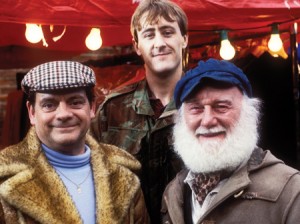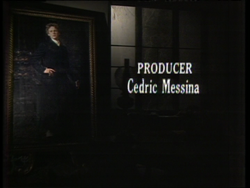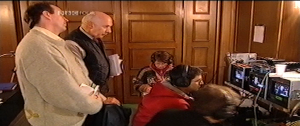by DAVID ROLINSON

After passing away in late April, writer John Sullivan (1946-2011) was paid tributes by many people from different walks of life, who reminisced about his great shows and great moments. Inevitably the long-running Only Fools and Horses (1981-2003) was central to those tributes, as so many of us remember visits to the Nag’s Head like reunions with friends, and can trace our lives with memories not just of the show but of the circumstances in which we watched it. Sullivan wrote some of television’s finest and most popular comedy series, but even that isn’t high enough praise. Sullivan’s best work belongs in the lineage of the great writers who inspired him, such as Johnny Speight and Ray Galton and Alan Simpson. Like them, Sullivan reflected everyday life back at his audience with respect for their experience and intelligence, and the audience’s recognition of truth produced not only laughs for his one-liners and set-pieces but also an emotional commitment and sense of social awareness of the kind critics usually associate with genres other than this less critically-respected popular form. He was a television writer in its purest sense, and in the ways by which we define key television playwrights: he mastered a genre whilst refining its capabilities and playing to his audience’s awareness of its functions, and for a while became as visible a “name” – whose credit on a programme produced certain expectations – as any more vaunted auteur. At his peak – surely the 1980s, given that unbroken run of success that included the early years of Only Fools and Horses plus Just Good Friends (1983-86) and Dear John (1986-87) – he changed the way we speak to each other.



